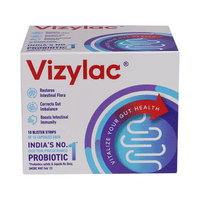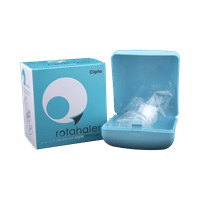Rs.128for 1 strip(s) (5 tablets each)
અન્ય પ્રકારોમાં ઉપલબ્ધ
Aziford Tablet માટે આંતરક્રિયાનો ખોરાક
Aziford Tablet માટે આંતરક્રિયાનો આલ્કોહોલ
Aziford Tablet માટે આંતરક્રિયાનો સગર્ભાવસ્થા
Aziford Tablet માટે આંતરક્રિયાનો સ્તનપાન
ખોરાક
આલ્કોહોલ
સગર્ભાવસ્થા
સ્તનપાન
Aziford 500 Tablet may be taken with or without food, but it is better to take it at a fixed time.
None
None
CAUTION
It is unsafe to consume alcohol with Aziford 500 Tablet.
UNSAFE
Aziford 500 Tablet is generally considered safe to use during pregnancy. Animal studies have shown low or no adverse effects to the developing baby; however, there are limited human studies.
SAFE IF PRESCRIBED
Aziford 500 Tablet is safe to use during breastfeeding. Human studies suggest that the drug does not pass into the breastmilk in a significant amount and is not harmful to the baby.
There may be a possibility of diarrhea or rash in the baby.
There may be a possibility of diarrhea or rash in the baby.
SAFE IF PRESCRIBED
Aziford 500mg Tablet માટે સોલ્ટની માહિતી
Azithromycin(500mg)
Aziford tablet ઉપયોગ
{med_name} is used in the treatment of bacterial infections. It is used in bacterial infections of tonsils, sinus, ear, nose, throat, skin and soft tissues, and lungs (pneumonia).
Aziford tablet કેવી રીતે કાર્ય કરે
Aziford 500 Tablet is an antibiotic. It works by preventing synthesis of essential proteins required by bacteria to carry out vital functions. Thus, it stops the bacteria from growing, and prevents the infection from spreading.
Aziford tablet ની સામાન્ય આડઅસરો
Diarrhea, Headache, Vomiting, Nausea, Abdominal pain, Palpitations, Chest pain, Indigestion, Flatulence, Dark colored stool, Vaginal moniliasis, Vaginal inflammation, Fatigue, Rash, Itching, Photosensitivity, Nephritis, Dizziness, Vertigo, Angioedema (swelling of deeper layers of skin)
Aziford Tablet માટે સબસ્ટિટ્યુટ
2578 સબસ્ટિટ્યુટ
2578 સબસ્ટિટ્યુટ
Sorted By
 Rs. 131.99pay 2% more per Tablet
Rs. 131.99pay 2% more per Tablet Rs. 79.19save 8% more per Tablet
Rs. 79.19save 8% more per Tablet Rs. 107.44save 19% more per Tablet
Rs. 107.44save 19% more per Tablet Rs. 67.95save 14% more per Tablet
Rs. 67.95save 14% more per Tablet Rs. 131.99pay 2% more per Tablet
Rs. 131.99pay 2% more per Tablet
Aziford Tablet માટે નિષ્ણાતની સલાહ
- Do not skip any doses and finish the full course of treatment even if you feel better. Stopping it early may make the infection to come back and harder to treat.
- Take it 1 hour before or two hours after food.
- Do not take antacids 2 hours before or after taking Azithromycin.
- Diarrhea may occur as a side effect but should stop when your course is complete. Inform your doctor if it doesn't stop or if you find blood in your stools.
- Stop taking Azithromycin and inform your doctor immediately if you develop an itchy rash, swelling of the face, throat or tongue or breathing difficulties while taking it.
Aziford 500mg Tablet માટે વારંવાર પૂછાતાં પ્રશ્નો
Azithromycin
Q. Is Aziford 500 Tablet safe?
Aziford 500 Tablet is safe if used at prescribed doses for the prescribed duration as advised by your doctor.
Q. What if I don't get better?
You should inform your doctor if you do not notice any improvement in your symptoms after 3 days of taking Aziford 500 Tablet. Also, if your symptoms get worse, inform your doctor immediately.
Q. Can the use of Aziford 500 Tablet cause diarrhea?
Yes, the use of Aziford 500 Tablet can cause diarrhea. It is an antibiotic which kills the harmful bacteria. However, it also affects the helpful bacteria in your stomach or intestine and causes diarrhea. If you are experiencing severe diarrhea, talk to your doctor about it.























